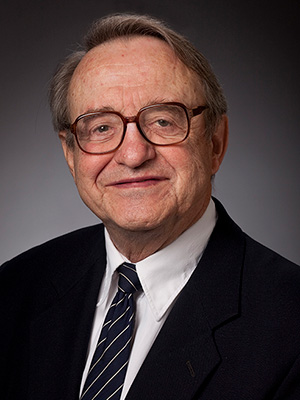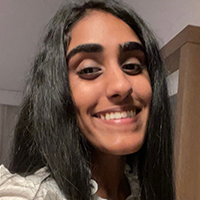In memoriam: Darwin Prockop
Darwin Johnson Prockop, a biochemist who held leadership positions at multiple institutions and was known for his contributions to adult stem cell biology and cellular biology, died Jan. 22 in Philadelphia. He was 94 and had neuromuscular disease.

Prockop was born Aug. 31, 1929, in Palmerton, Pennsylvania, the son of Ukrainian immigrant parents. In 1951, he graduated with a bachelor’s degree in philosophy from Haverford College. Two years later, he earned a master’s degree in animal physiology at the University of Oxford through the Fulbright Program. He completed his medical degree at the University of Pennsylvania in 1956, and in 1961 he earned his doctorate in biochemistry from George Washington University.
Prockop returned to UPenn to join the medical faculty from 1961 to 1972, then left to become a biochemistry professor and chair of the biochemistry department at the University of Medicine and Dentistry of New Jersey in Piscataway from 1972 to 1986. He was a professor at Thomas Jefferson University and served as chair of the biochemistry and molecular biology department from 1986 to 1996. He was a professor and director of the Center of Gene Therapy at Hahnemann University Hospital, Allegheny College and Drexel University from 1996 to 2000. He was director of the Center for Gene Therapy at Tulane University for eight years, then served as director of the Center for Regenerative Medicine at Texas A&M University. He retired from his academic positions in 2019.
Massimo Dominici, then president of the International Society for Cell Therapy, called Prockop “the grandfather of cellular therapy research,” for his contributions to the field of mesenchymal progenitors, specifically mesenchymal stromal cells, or MSCs. In 2001, Prockop organized the first MSC scientific meeting in collaboration with the ISCT.
MSCs originate from bone marrow, adipose and other tissues. They can differentiate into bone cells (osteoblasts), cartilage cells (chondrocytes), muscle cells (myocytes), and fat cells that form marrow adipose tissue (adipocytes). Because MSCs can produce humoral factors, Prockop found that they could be used in treating bone diseases. The immunosuppressive, immunomodulatory and angiogenic properties of these secreted humoral factors help restore damaged tissue.
Prockop is also known for his work in biochemistry, specifically his research on collagen structure, function and genetics, which contributed to novel treatments for diseases involving collagen. He developed sensitive genetic tests for mutations in collagen to screen patients with Marfan syndrome and brittle bone disease.
During his career, Prockop published almost 600 scholarly articles. He was a member of the American Society for Biochemistry and Molecular Biology for almost 50 years. He was also an elected member of the National Academy of Sciences, National Academy of Medicine and National Academy of Inventors. In 2016, he won the inaugural Career Achievement Award from the ISCT, which created the Darwin J. Prockop Mentoring Award in 2020.
Prockop’s wife, Elinor, died in 2014. He is survived by his two children, Susan and David, and their wives, Kristie and Hope, and by two grandchildren, Molly and Lyle Prockop.
Enjoy reading ASBMB Today?
Become a member to receive the print edition four times a year and the digital edition monthly.
Learn moreGet the latest from ASBMB Today
Enter your email address, and we’ll send you a weekly email with recent articles, interviews and more.
Latest in People
People highlights or most popular articles

The data that did not fit
Brent Stockwell’s perseverance and work on the small molecule erastin led to the identification of ferroptosis, a regulated form of cell death with implications for cancer, neurodegeneration and infection.

Building a career in nutrition across continents
Driven by past women in science, Kazi Sarjana Safain left Bangladesh and pursued a scientific career in the U.S.

Kiessling wins glycobiology award
She was honored by the Society for Glycobiology for her work on protein–glycan interactions.

2026 ASBMB election results
Meet the new Council members and Nominating Committee member.

Simcox wins SACNAS mentorship award
She was recognized for her sustained excellence in mentorship and was honored at SACNAS’ 2025 National Conference.

From humble beginnings to unlocking lysosomal secrets
Monther Abu–Remaileh will receive the ASBMB’s 2026 Walter A. Shaw Young Investigator Award in Lipid Research at the ASBMB Annual Meeting, March 7-10 in Washington, D.C.

